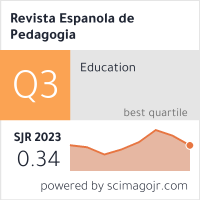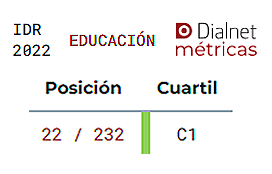La formación de la inteligencia a través de la literatura grecolatina y su pervivencia
DOI
10.22550/REP79-1-2021-10
Abstract
Although the classical languages and literatures of Greece and Rome enjoy great prestige, they are increasingly neglected in mainstream curricula. This work aims to analyse the principal reasons behind this situation. To do so, it turns to the thoughts of different specialists who have considered the issue in depth. Their opinions cover a wide array of perspectives, but they all agree on one key point: the scant attention usually paid to texts in the teaching of Greco-Latin literature. Scholars have tended to focus on context, therefore obscuring the texts: they pay more attention to morphological, syntactic, historical, literary, and metric aspects than to the texts themselves. Means have thus become ends, with tangible and unfortunate consequences. As a solution to this, we propose returning the texts to the centre of the classroom, through reading —in full if possible— and discussion of the original works. This way, Greek and Latin language studies will achieve a greater relevance, precisely because they would allow a deeper and more direct knowledge of the classics.
Please, cite this article as follows: Arenal López, L. (2021). La formación de la inteligencia a través de la literatura grecolatina y su pervivencia | The formation of intelligence through Greco-Latin Literature and its survival. Revista Española de Pedagogía, 79 (278), 51-58. 10.22550/REP79-1-2021-10
- Keywords:
- Greek (classical)
- linguistics
- literature
Referencias | References
Calvino, I. (1991). Perché leggere i classici [Why read the classics]. Mondadori.
Cicero (1911). Orationes [Prayers] (vol. VI). Oxford Classical Texts.
De Romilly, J. (1992). Pourquoi la Grèce? [Why Greece?]. Editions de Fallois.
Díaz y Díaz, M. C. (2006). El filólogo clásico ante el Latín Medieval: nuevos compromisos y responsabilidades [The classic philologist before Medieval Latin: new commitments and responsibilities]. In A. A., Nascimento & P. F. Alberto (Eds.), Actas do IV Congresso Internacional de Latim Medieval Hispânico (Lisboa, 12-15 de Outubro de 2005) (pp. 91-98). Centro de Estudos Clássicos, Faculdade de Letras de Lisboa.
Fontán, A. (2001). Letras y poder en Roma [Letters and power in Rome]. Eunsa.
García Gual, G. (2017). La luz de los lejanos faros. Una defensa apasionada de las humanidades [The light of the distant lighthouses. A passionate defence of the humanities]. Ariel.
Gardini, N. (2017). ¡Viva el latín! Historias y belleza de una lengua inútil [Long Live Latin: The Pleasures of a Useless Language]. Crítica.
Jiménez Lozano, J. (2003). Los cuadernos de letra pequeña. Pretextos.
Lewis, C. S. (2001). The Screwtape Letters. Harper-Collins.
Martialis (2007). Epigrammata. Oxford Classical Texts. Muti Arbós, J. (2017). En torno a la didáctica de las lenguas clásicas: qué, cómo y para qué [About teaching classical languages: What, how and why]. Estudios Clásicos, 151, 157-177.
Ordine, N. (2013). La utilidad de lo inútil. Manifiesto [The usefulness of the useless]. Acantilado.
Valera, J. (1907). Obras completas (vol. XII). Imprenta alemana.
Citación recomendada | Recommended citation
López, L. A.
(2021)
.
The formation of intelligence through Greco-Latin literature and its survival.
Revista Española de Pedagogía, 79(278).
https://doi.org/10.22550/REP79-1-2021-10
Licencia Creative Commons | Creative Commons License
Esta obra está bajo una licencia internacional Creative Commons Atribución-NoComercial 4.0.
This work is licensed under a Creative Commons Attribution-NonCommercial 4.0 International License









